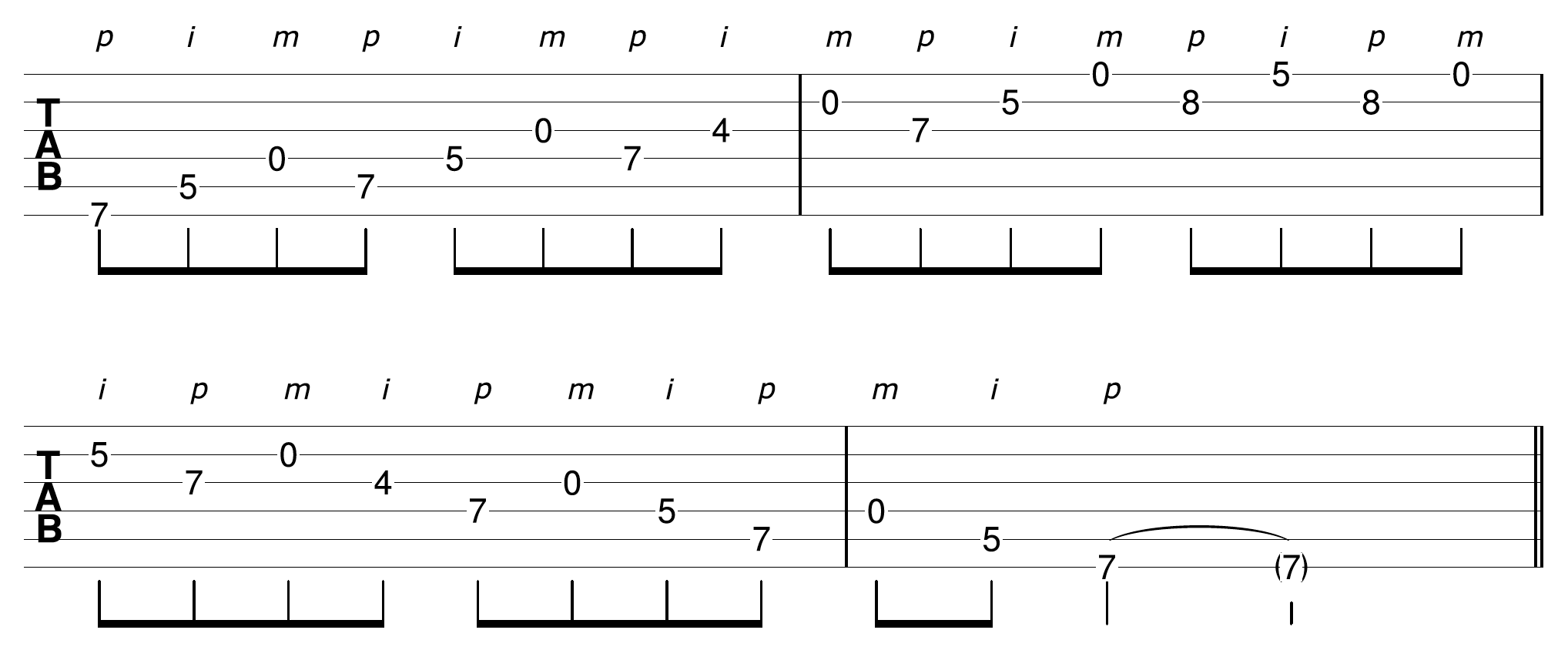Soloing With Open Strings On Guitar Part 1: How To Create Amazing Guitar Solos Using Open Strings And Pentatonic Scale Patterns
By Simon Candy
There are many ways you can create really unique solo lines on your acoustic guitar. One such approach is to involve the use of open strings. If until this point in time you have only used open strings in open chords and first position playing, then it’s time you realised their full potential and how great they can make your solo playing on acoustic guitar, and electric for that matter, sound.
Today, in the first of a three part video series, I want to bring together for you the open strings and something else I’m sure you are familiar with on your guitar, pentatonic scales. The pentatonic scale is the most commonly used scale pattern on guitar. It sounds great, but it can also sound predictable and I don’t think I have met a guitar player yet who has not at some time or other become bored with only using pentatonic scales when soloing on their guitar.
Enter the open string!
This is going to make all the difference.
In this video lesson I am going to show you a way I have developed of combining the pentatonic scale with open strings to bring a new, refreshing and totally unpredictable, but very cool sound to your acoustic guitar soloing.
This coming together of the open strings and pentatonic patterns is easy to do, but will sound super advanced. This is because of the consistency of what both your fretting and picking hands will be doing throughout.
When ascending the pentatonic scale with this open string approach, your picking hand will be using what’s known as a forward banjo roll. This is a rotating fingerpicking pattern that uses your thumb (p), index (i), and middle (m) fingers across adjacent strings:

When descending the pentatonic patterns, you will use the backward banjo roll, which is the forward roll, only backward:

You won’t be playing banjo rolls in this video per se, however we will be applying this pattern across the 6 strings of your guitar in the following way:

When descending the pentatonic pattern it will look like this:

You can generate a lot of speed with this simple fingerpicking pattern, and once we connect it with our pentatonic patterns you’ll be away and creating all sorts of cool combinations of fretted notes and open strings to breathe new life into your guitar solos!
So watch the video below to learn exactly how to master this cool, easy, and unique sound in your acoustic guitar soloing.
The following are examples that are demonstarted in the video.
Open String Pentatonic Pattern 3 Ascending:

Open String Pentatonic Pattern 3 Descending:

Open String Pentatonic Pattern 3 Ascending And Descending:

If you like this video on creating solos using pentatonic scale patterns and open strings on your guitar, then be sure to subscribe to my youtube channel below so you can receive notifications of more videos like this one.